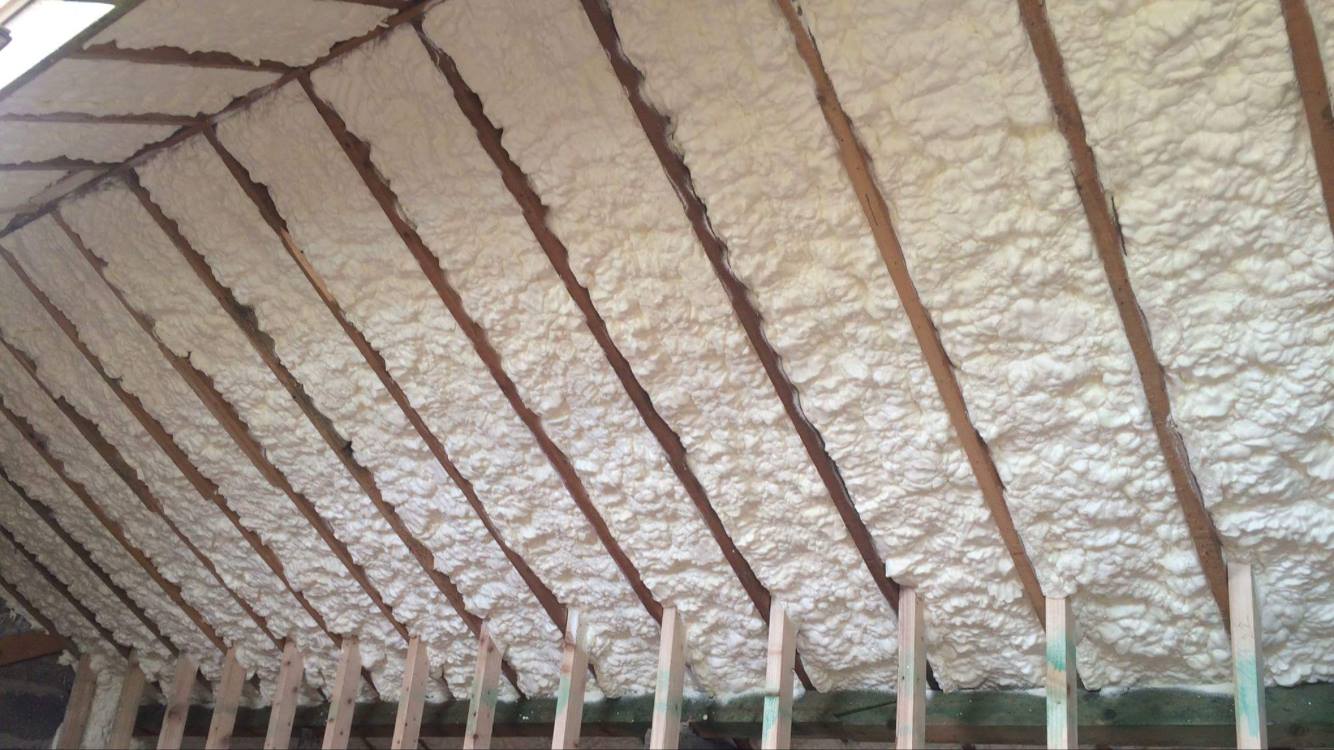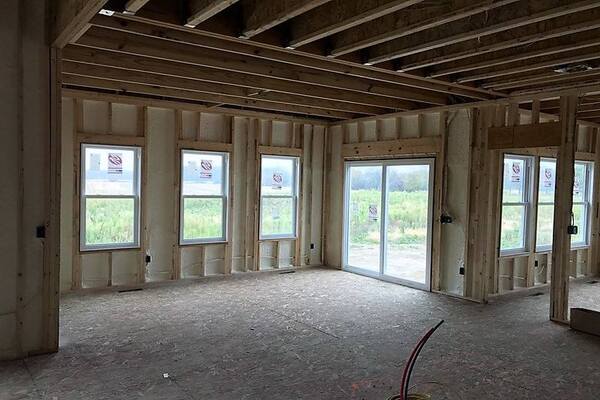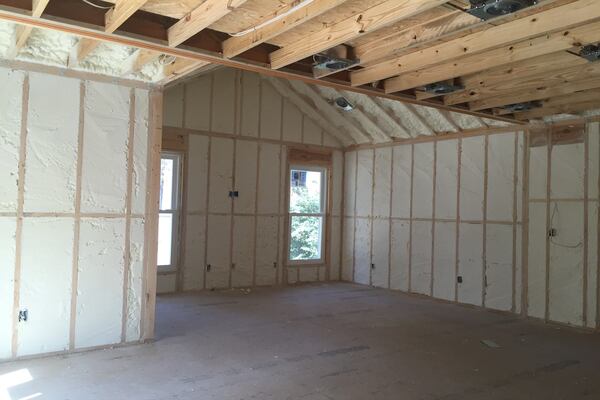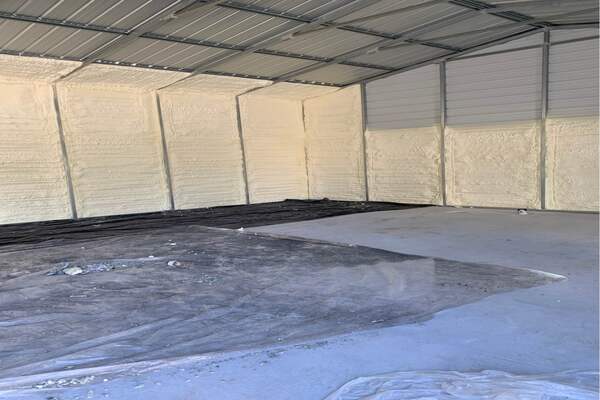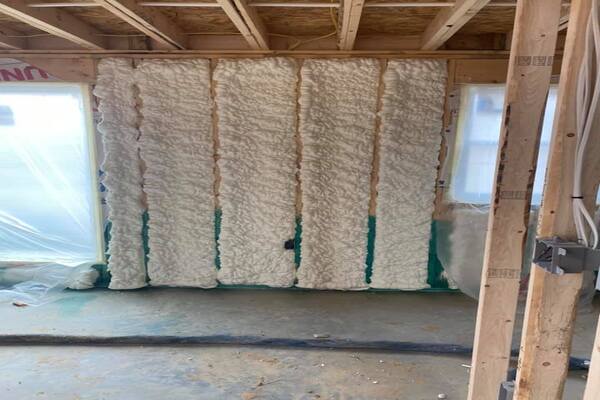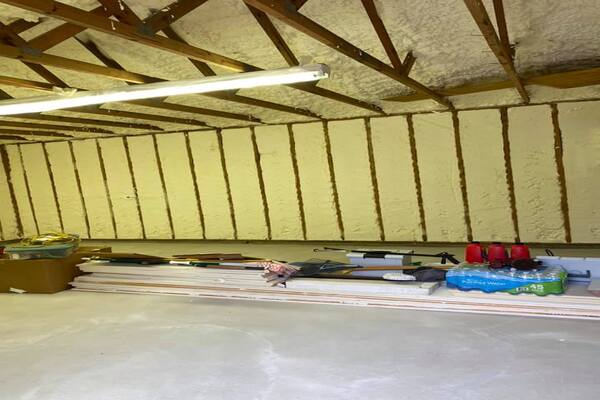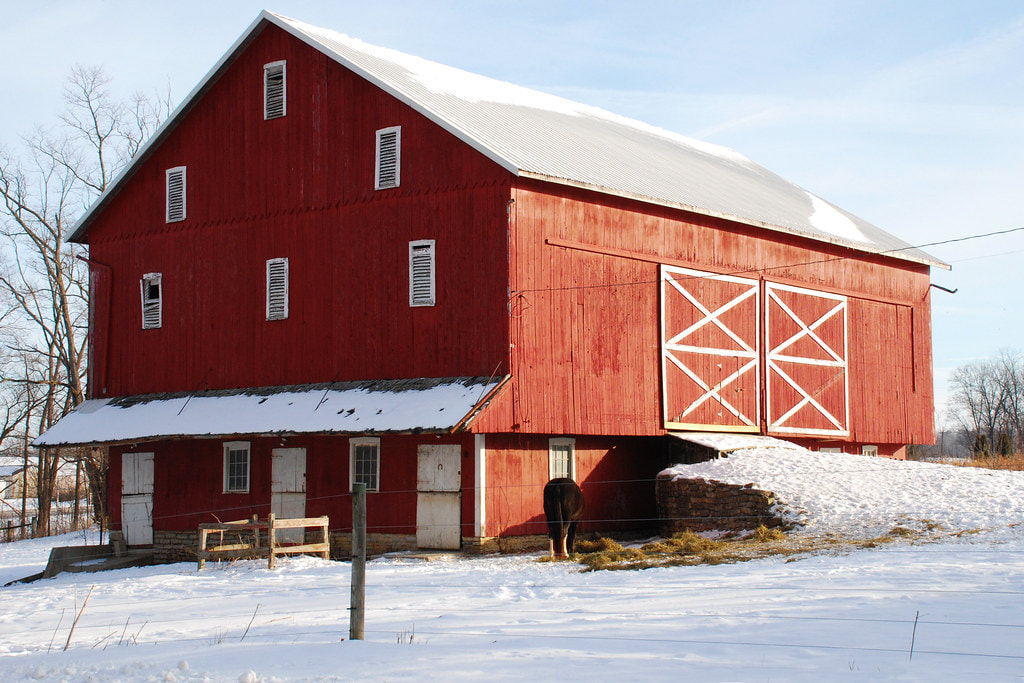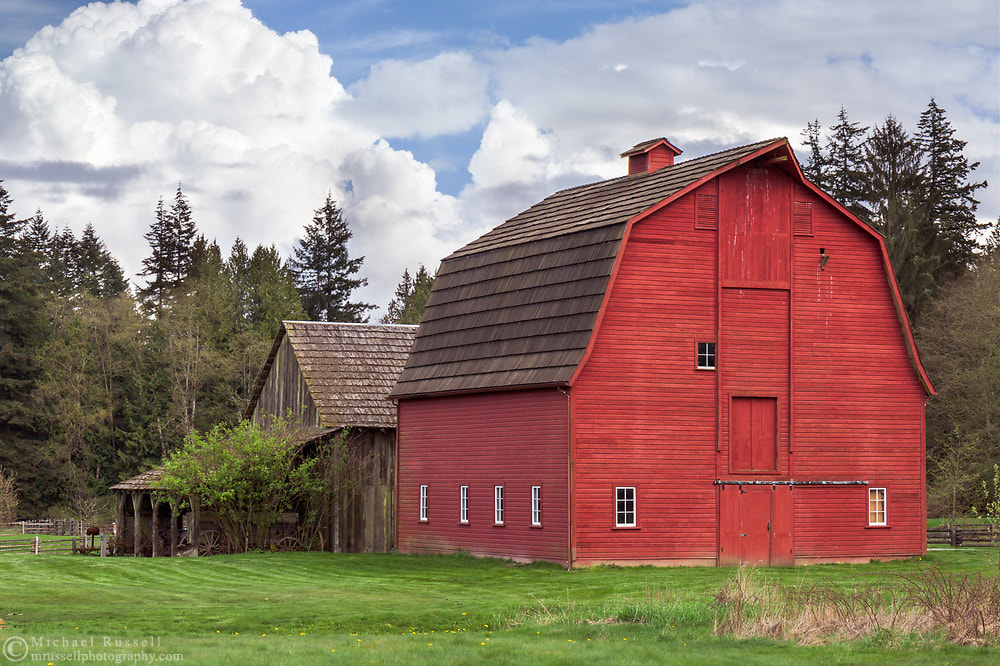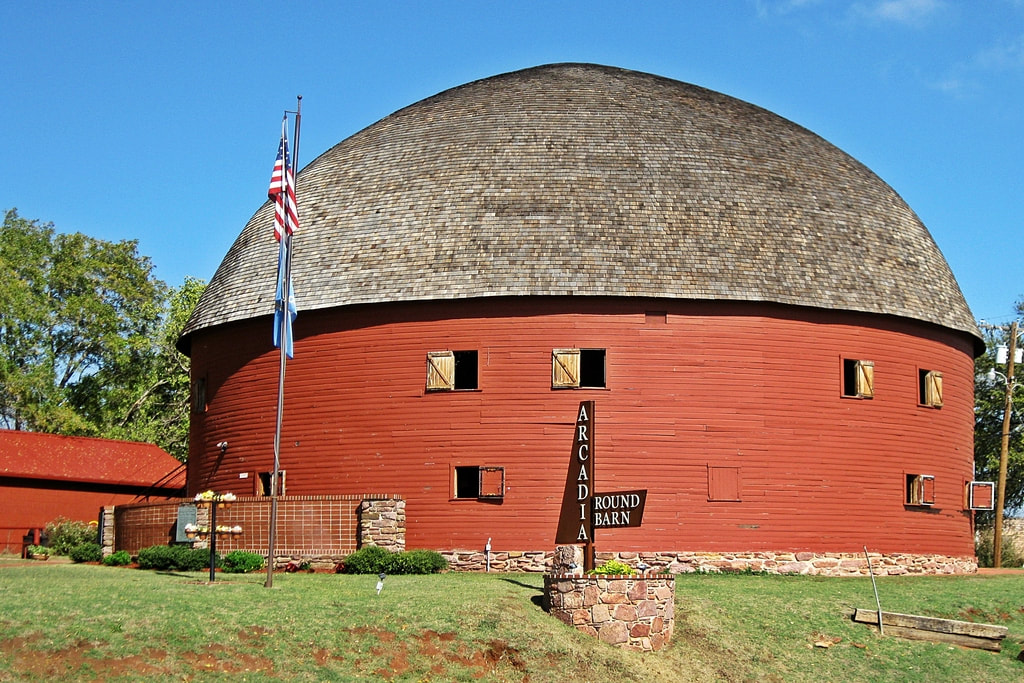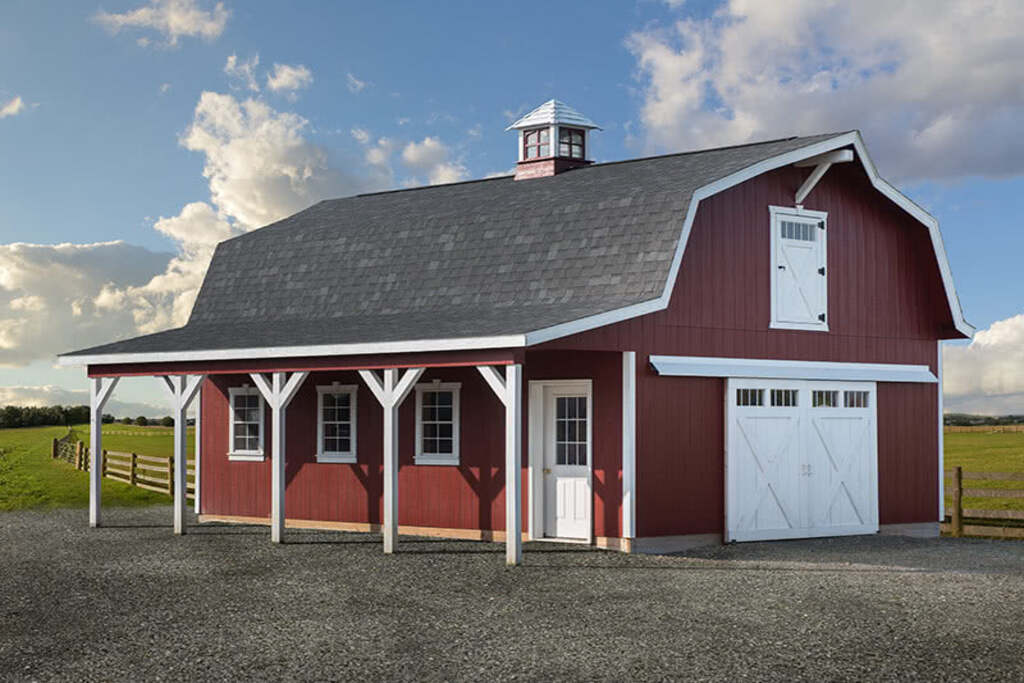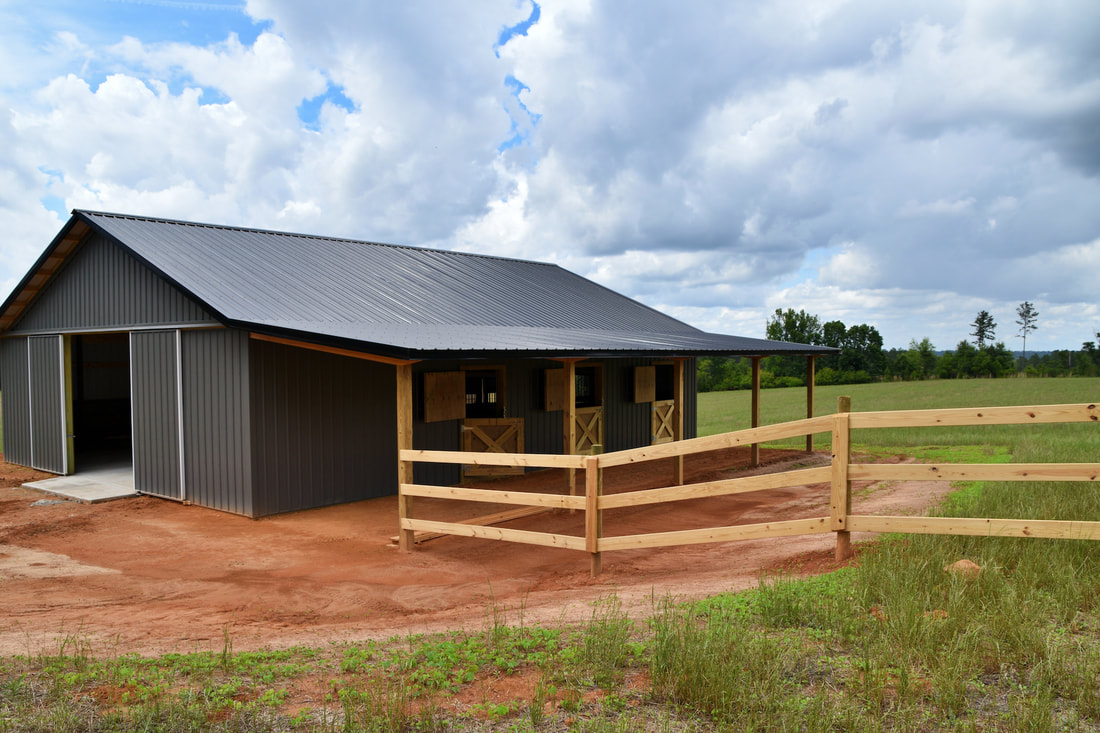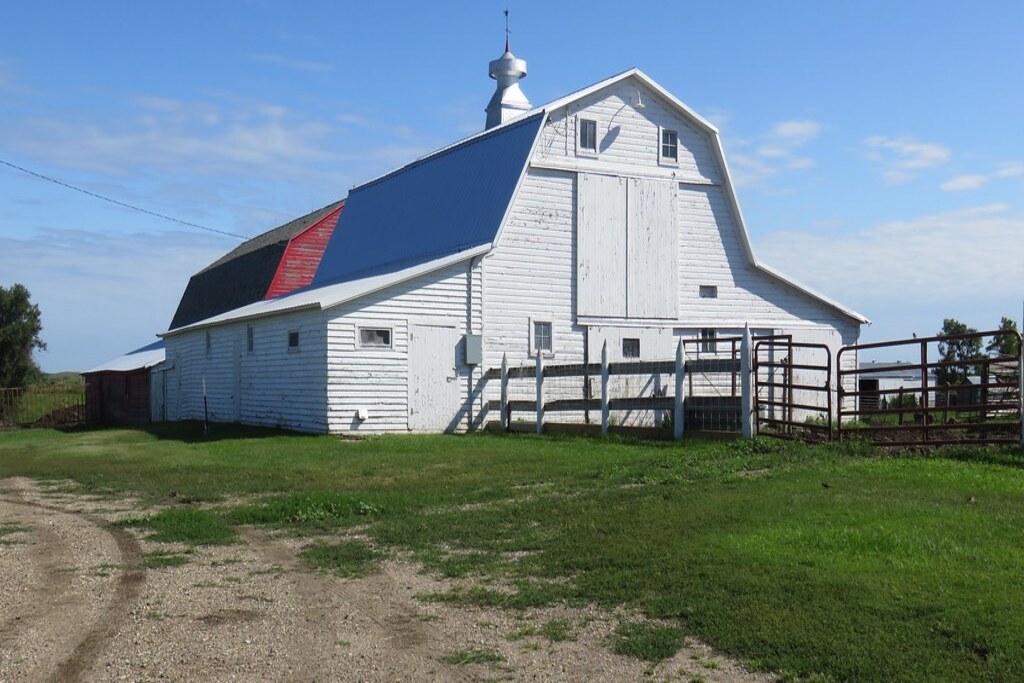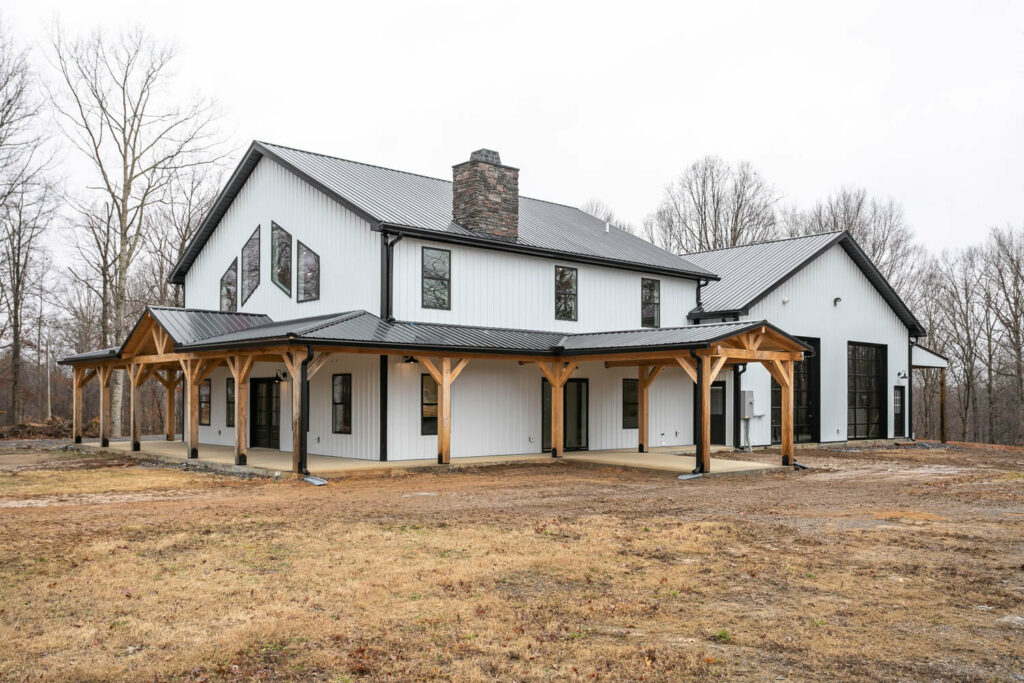Barn Insulation Services Fort Wayne
Barns are important agricultural structures that are used for a variety of purposes, from storing crops and equipment to providing shelter for livestock. However, they can be vulnerable to extreme weather conditions, which can make them less efficient and increase energy costs. One solution to this problem is spray foam insulation, which is an effective way to insulate a barn and protect it from the elements.
|
About Us:
FWI Spray Foam Insulation is a company located in Fort Wayne that specializes in spray foam insulation installation for a variety of applications, including barns. They use the latest equipment and techniques to ensure that their installations are effective and long-lasting. Here's what you need to know about barn spray foam installation and the advantages it offers. |
Types of Spray Foam Insulation
There are two main types of spray foam insulation: open-cell and closed-cell. Open-cell foam is less dense and has a lower R-value than closed-cell foam, but it is also less expensive. It is typically used in areas where a high level of insulation is not required, such as interior walls and ceilings. Closed-cell foam is more dense and has a higher R-value than open-cell foam, making it ideal for exterior applications and areas where a high level of insulation is needed.
Why Choose Spray Foam Insulation For Your Barn
Types of Barns That Are Best Suited For Spray Foam Insulation
Fort Wayne, Indiana, and its surrounding areas are home to a variety of different types of barns, many of which reflect the agricultural history and heritage of the region. Here are some of the most common types of barns found in Fort Wayne:
|
Bank Barn:
A bank barn is a type of barn that is built into the side of a hill, with one or more of its walls partially below ground level. This design allows for easy access to the upper level of the barn from ground level, often through large doors on the uphill side. Bank barns were common in Fort Wayne and other parts of the Midwest in the 19th and early 20th centuries. |
Gable Barn:
A gable barn is a classic barn design that features a steeply pitched roof with a ridge running down the center. This type of barn is often used for hay storage and animal housing and is popular in rural areas around Fort Wayne. |
Round Barn:
A round barn is a unique type of barn that features a circular shape and a central silo-like structure. Round barns were popular in the late 19th and early 20th centuries and are still found in some areas around Fort Wayne. |
|
Dutch Barn:
A Dutch barn is a traditional barn design that features a gambrel roof with two slopes on each side. This design provides more space for hay storage and allows for easier access to the upper level of the barn. |
Pole Barn:
A pole barn is a type of barn that is constructed using poles or posts instead of a traditional foundation. Pole barns are often used for storage, as workshops, or for housing livestock and are popular in rural areas around Fort Wayne. |
Dairy Barn:
A dairy barn is a type of barn that is specifically designed for milk production and storage. These barns often have specialized features such as milk rooms, milking parlors, and cooling systems. |
These are just a few of the many types of barns found in Fort Wayne and the surrounding areas. Each type of barn has its own unique features and requirements for insulation and other building materials. If you're considering insulating your barn, be sure to consult with a professional insulation contractor who has experience working with the specific type of barn you have.
What Makes Spray Foam Better Than Regular Insulation?
Spray foam insulation offers several advantages over traditional insulation materials like fiberglass, cellulose, or mineral wool. Here are a few reasons why spray foam is often considered a superior insulation option:
|
1. Better Insulation Performance:
Spray foam has a higher R-value (thermal resistance) than other insulation materials. This means that it is more effective at keeping heat inside during the winter and outside during the summer, reducing energy costs and making your home more comfortable. |
2. Air Sealing:
Spray foam insulation provides an air-tight seal that prevents drafts and air leaks. This can help to improve indoor air quality, reduce outside noise, and prevent pests from entering your home. |
3. Moisture Control:
Spray foam insulation is water-resistant and can help to prevent moisture from entering your home. This can reduce the risk of mold growth and water damage. |
|
4. Longevity:
Spray foam insulation can last for decades without losing its insulating properties. This means that it can provide long-term savings and reduce the need for frequent insulation replacement or maintenance. |
5. Versatility:
Spray foam insulation can be used in a variety of applications, including walls, roofs, attics, and crawl spaces. It can also be used to insulate irregularly-shaped areas or hard-to-reach spaces that other insulation materials can't easily reach. |
Overall, spray foam insulation is a high-performance insulation option that can provide significant benefits in terms of energy efficiency, indoor comfort, durability, and versatility. While it may be more expensive upfront than traditional insulation materials, it can provide long-term savings and pay off in terms of increased comfort, reduced energy bills, and improved indoor air quality.
Spray Foam Insulation Is Also Good For Barn Adjacent Structures
|
Spray foam insulation is also a great option for non-barn structures like barndominiums, which are a type of building that combines a barn and a residential home into one structure. Barndominiums have become increasingly popular in recent years due to their affordability, durability, and flexibility. However, because they are often made from metal or other non-traditional materials, they can be more challenging to insulate than conventional homes. |
Spray foam insulation is an excellent choice for barndominiums for many of the same reasons it is ideal for barns. It provides a high level of thermal insulation, which can help to keep the interior of the home comfortable and reduce energy costs. Spray foam insulation also provides a superior air seal, preventing drafts and air leaks, which can lead to energy loss and higher energy bills. Additionally, spray foam insulation is moisture-resistant, which can help to prevent water damage and mold growth.
Barndominiums often have open floor plans and high ceilings, which can make them more difficult to insulate with traditional insulation materials like fiberglass batts. Spray foam insulation can be sprayed directly onto the walls and ceilings, conforming to any shape or size, which makes it an ideal solution for these types of structures. Additionally, spray foam insulation has a longer lifespan than traditional insulation materials, which means that it may be a more cost-effective option over time.
In Conclusion, Should You Go With Spray Foam Insulation?
In summary, spray foam insulation is an excellent choice for non-barn structures like barndominiums, providing superior insulation performance, air sealing, moisture control, and versatility. If you're considering insulating your barndominium, be sure to consult with a professional insulation contractor who can recommend the best type of spray foam insulation for your specific needs and ensure that the installation is done correctly.
